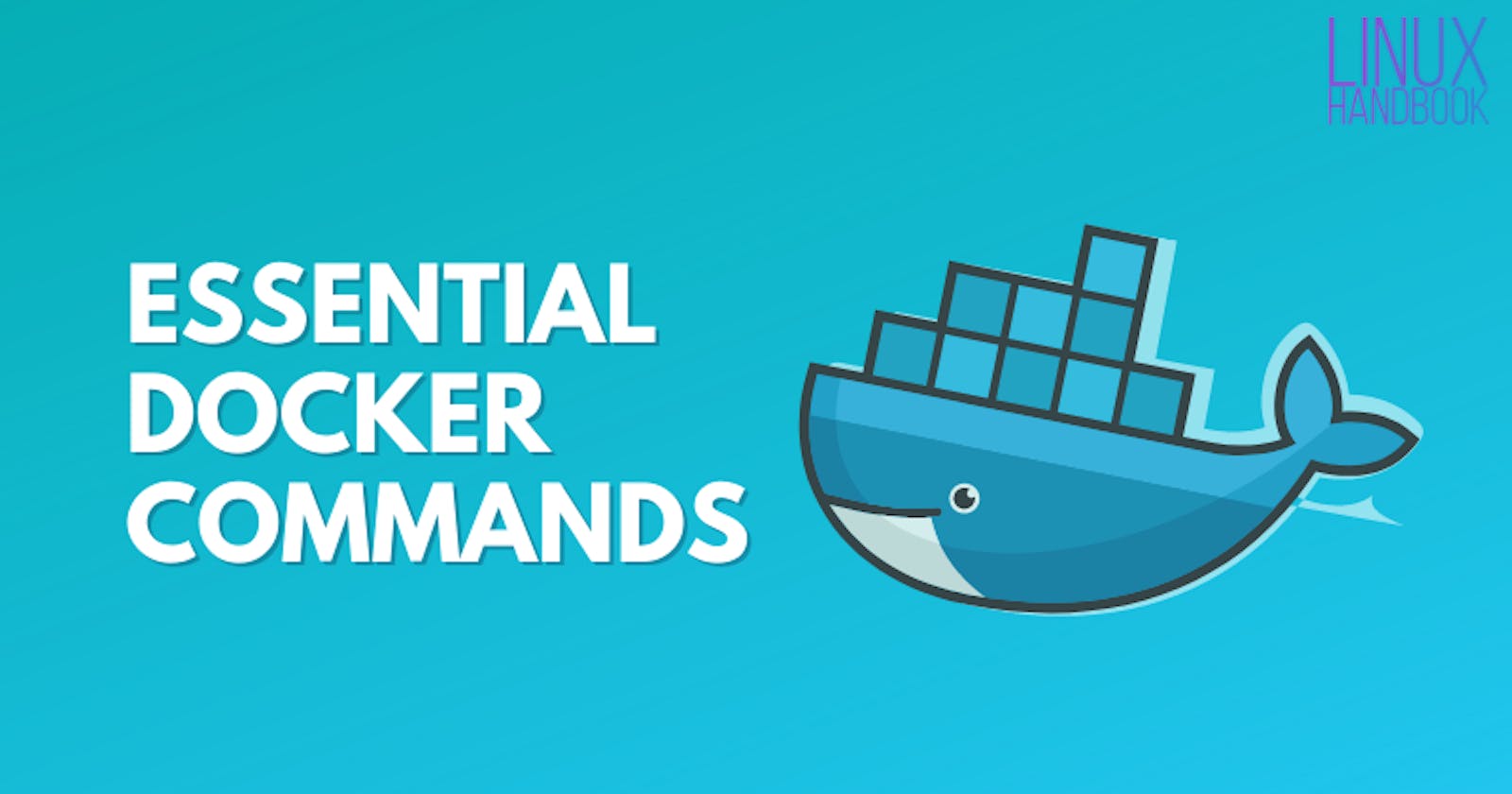Managing Containers :
Run a Container :
docker run [OPTIONS] IMAGE [COMMAND] [ARGS]List Running Containers :
docker psList All Containers (including stopped ones) :
docker ps -aStart a Stopped Container :
docker start CONTAINER_IDStop a Running Container :
docker stop CONTAINER_IDRestart a Container :
docker restart CONTAINER_IDRemove a Container (stop and delete) :
docker rm CONTAINER_IDExecute a Command in a Running Container :
docker exec [OPTIONS] CONTAINER_ID|NAME [COMMAND] [ARGS]Inspect Container Details :
docker inspect CONTAINER_IDAttach to a Running Container's STDIN, STDOUT, and STDERR :
docker attach CONTAINER_ID
Managing Images :
List Docker Images :
docker imagesPull an Image from a Registry :
docker pull IMAGE_NAME[:TAG]Build an Image from a Dockerfile :
docker build [OPTIONS] PATH_TO_DOCKERFILETag an Image :
docker tag SOURCE_IMAGE[:TAG] TARGET_IMAGE[:TAG]Remove an Image :
docker rmi IMAGE_IDSearch for Images on Docker Hub :
docker search IMAGE_NAMESave an Image to a Tarball File :
docker save -o OUTPUT_FILE.tar IMAGE_NAME[:TAG]Load an Image from a Tarball File :
docker load -i INPUT_FILE.tar
Managing Docker Volumes :
List Docker Volumes :
docker volume lsCreate a Docker Volume :
docker volume create VOLUME_NAMEInspect a Docker Volume :
docker volume inspect VOLUME_NAMERemove a Docker Volume :
docker volume rm VOLUME_NAME
Managing Networks :
List Docker Networks :
docker network lsCreate a Docker Network :
docker network create NETWORK_NAMEInspect a Docker Network :
docker network inspect NETWORK_NAMERemove a Docker Network :
docker network rm NETWORK_NAME
Managing Docker Compose :
Start Docker Compose Services :
docker-compose up [OPTIONS] [SERVICE...]Stop Docker Compose Services :
docker-compose down [OPTIONS]Build or Rebuild Docker Compose Services :
docker-compose build [SERVICE...]View Docker Compose Logs :
docker-compose logs [SERVICE...]
Docker Registry and Authentication :
Login to a Docker Registry :
docker login [OPTIONS] [SERVER]Logout from a Docker Registry :
docker logout [SERVER]Miscellaneous Commands:
Miscellaneous Commands :
View Docker Version Info :
docker versionCheck Docker System Information :
docker infoDisplay Docker Disk Usage :
docker system dfMonitor Docker Events :
docker events [OPTIONS]Pull and Apply Updates to Docker Swarm Services :
docker service update [OPTIONS] SERVICEClean Up Unused Resources (Containers, Images, Volumes, Networks) :
docker system prunePause a Running Container :
docker pause CONTAINER_IDUnpause a Paused Container :
docker unpause CONTAINER_IDInspect Docker Daemon Logs :
docker logs docker
Docker Swarm (Container Orchestration) :
Initialize a Docker Swarm :
docker swarm init [OPTIONS]Join a Node to a Docker Swarm :
docker swarm join [OPTIONS] HOST:PORTList Nodes in a Docker Swarm :
docker node lsCreate a Docker Service :
docker service create [OPTIONS] IMAGE [COMMAND] [ARGS]List Docker Services :
docker service lsScale a Docker Service :
docker service scale SERVICE=REPLICASInspect a Docker Service :
docker service inspect SERVICERemove a Docker Service :
docker service rm SERVICELeave a Docker Swarm (Node) :
docker swarm leave [OPTIONS]
These are some of the most commonly used Docker commands for managing containers, images, volumes, networks, and Docker Swarm. Depending on your specific use case, you may need to use additional commands and options to tailor Docker to your needs.
